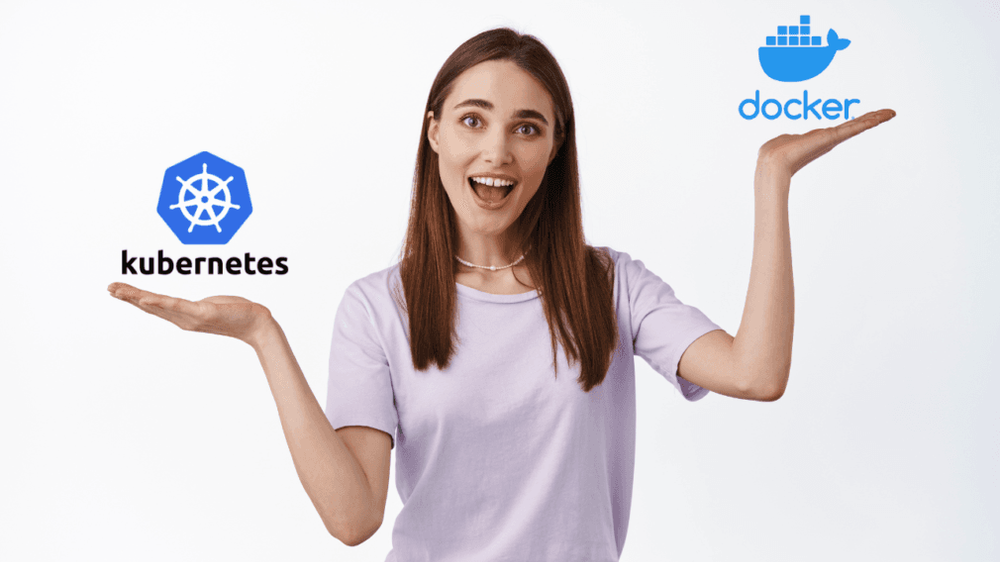When you start working in an organization, you realize that a principal goal will be to keep costs low and make applications not only easier to deploy but easier to manage. Docker and Kubernetes are the leaders on this matter, It’s not only because they’re popular, but because there’s a legitimate use case to start implementing cloud-native patterns. For example; Instead of deploying applications to virtual machines and managing the scale yourself, there are orchestration systems that can do it for you.
Often, people wonder which one of them is better. Well, both are vital to the process of containerization. Knowing them both will help you get ahead of the competition, and make you a more demanded professional. When we speak of container technologies, both Docker and Kubernetes are open-source forefronts. While many people are trying to figure out which one to learn first, they are basing their decision on a misconception.
Learning Docker and Kubernetes is highly important. So, what is the difference between the two? Let’s take a closer look.
Containerization
To understand the differences between Docker and Kubernetes, you must first explore containers. Containerization is based on packaging software with all its necessary components like libraries, frameworks, and other dependencies so that they are isolated in their container.
Containerization works in this way so that the software or application within the container can be moved and run consistently in any environment and on any infrastructure not minding the infrastructure of the OS. Containers act as an environment that surrounds the app and keeps it independent of its surroundings. It could be seen as a fully functional and portable computing environment.
What Is Docker?
Docker is a platform for building apps based on containers. It is useful to create small and lightweight execution environments that make shared use of the operating system kernel but otherwise run in isolation from one another.
It’s a set of tools that allows the developer to work with containers by using a simple collection of commands.
Container technology has been around for years. Linux Containers were available in 2008, while Docker appeared in 2013. Nevertheless, Docker is so popular that many developers use containers and Docker interchangeably.
Docker container technology:
- Allows users to enjoy seamless portability
- Offers lightweight updates
- Provides automated container creation
- Offers container versioning
- Has container reuse
- Supports shared container libraries
What Is Kubernetes?
While Docker is a container runtime, Kubernetes is a platform for running and managing containers from many container runtimes. Kubernetes supports numerous container runtimes including Docker, containerd, CRI-O, and any implementation of the Kubernetes CRI (Container Runtime Interface). It helps you keep track of the hosts where the containers are running, and the containers themselves when applications grow and create multiple containers deployed across various servers, operating these apps becomes complex, and to manage the operation, Kubernetes offers an open-source API that controls where and how these containers run.
Kubernetes works with clusters of virtual machines. You can schedule containers on any of these machines based on the needs of the developer. Containers are grouped into pods, which can be scaled to accommodate your team’s needs.
Which One to Learn First?
While the two platforms may seem similar at first glance, they are completely different. A good metaphor is Kubernetes as an “operating system” and Docker containers are “apps” that you install on the “operating system”. Docker is a containerization platform that allows developers to create applications without having to worry about how they will be deployed. If you want to work with containers without worrying about how they will be deployed, you should start by learning Docker.
If your goal is to keep multiple containerized apps up and running, Kubernetes is a great platform to take advantage of.
If you are a developer, you most likely need to learn how to work with Docker first. The need for Kubernetes usually comes later.
Containers are a hot topic for developers. While you learn about them for one app, consider learning about two containerization platforms: Docker and Kubernetes. Docker is a great place to start because it helps you deploy, manage, and scale one app. Then you can move on to Kubernetes to manage several apps at once.



